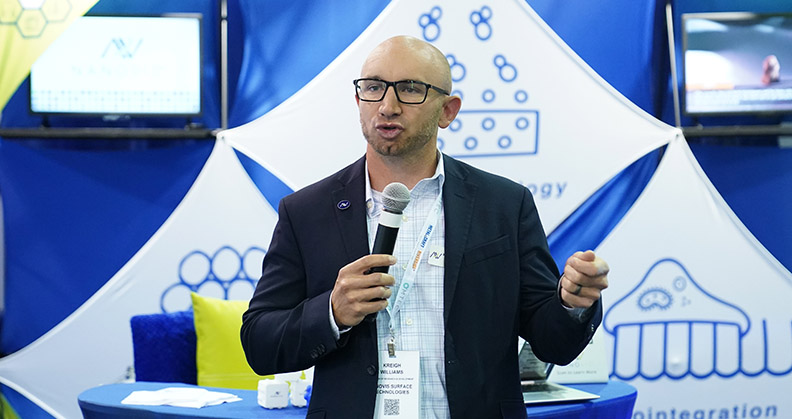
Why is it so hard for leaders to say no? Perhaps because they got to where they are by constantly striving and overachieving to climb the corporate ladder. Old habits die hard, even when you reach the corner office.
That’s only part of the issue, according to Patrick Ewers, CEO of Mindmaven, an executive coaching firm based in San Francisco. He noted that leaders often believe they need to do it all.
“They don’t want to be perceived as arrogant or uncaring, so they rationalize reasons to say yes,” he said.
Instead, leaders must learn to say no in ways that don’t damage professional relationships, Ewers noted. Doing so sets appropriate boundaries on their time, which is critically important in today’s high-stress, high-productivity work environments.
“Time is finite, and it doesn’t scale,” Ewers said. “Leaders need to be intentional with how much of it they have.”
Developing the Ability
Saying no is a learned skill and it’s important to develop it. Ewers suggests a simple exercise as a starting point.
Look back at the last four weeks on your work calendar and rate every meeting you had as “not a good use of time” or a “good use of time.” You should be able to determine that at least 80% of the meetings were worthwhile.
Then, look at the next four weeks planned out on your calendar. Remove or reassign meetings that you think won’t be a good use of your time and replace them with intentional blocks of “whitespace” that you can use to move the needle forward for your business.
Completing this exercise might be difficult as you push through the uncomfortableness of canceling or excusing yourself from non-essential meetings. Eventually, the practice will become second nature and allow you to turn more attention to growth-minded responsibilities.
Learning to say no also involves occasionally turning down individual requests for advice or answers to specific questions, Ewers noted. He said it helps to provide people with alternative solutions to their inquiries. You could send them a resource or direct the request to a colleague who could provide the necessary information.
When you can’t manage a request but want to revisit it, Ewers recommends that you acknowledge receiving the inquiry and ask the person to check back later. In the meantime, the person could find a solution from another source. That’s a win/win: They’re left with acknowledgment of their inquiry and an appreciation of your willingness to help at a future date.
You could also redirect requests to a more appropriate source, Ewer advised. Connecting someone with a colleague or industry expert is a great way to expand their network and provide them with helpful answers to their inquiry.
“By focusing on how you can provide value in your rejections, you maintain control over your time and resources while helping others more effectively,” Ewers said. “Every ‘no’ frees up space for a meaningful ‘yes’ that pushes you closer to achieving your fullest potential.”
The Power of Delegation
Ewers suggests being realistic about your available time and making proactive choices to focus on your most important tasks or responsibilities. “Delegate non-essential items on your to-do list and say no to everything else that isn’t a productive use of your time,” he advised.
Leverage involves using key resources for maximum advantage, according to Ewers, who teaches his clients to use “radical delegation” as a superpower. He identifies the concept as among the most under-utilized and most important skills that leaders have in their toolbox.
“Delegation is essential for leaders to master and execute in order to do their job effectively,” he said. “It involves understanding when and how to make decisions, ways to direct and manage others and how best to motivate them.”
He said passing off responsibilities frees up time for you to take on tactical tasks that help your company grow. It ultimately gives you more time to lead and elevates the skill sets of team members, according to Ewers.
“Most delegated tasks are repeatable, so you’re freeing up more time for yourself and building infrastructure that can be repeated as you scale and grow the business,” he said.
Hoarding work for fear that only you can manage it allows for little growth for you or your team, Ewers noted. He said delegating teaches you to let go of your ego.
“You don’t have to do it all. People on your team can do things just as well as you or, in some cases, even better,” he added. “Delegating involves building trust and mutual respect among your team members.”
Intentional Improvement
Burnout is real and prevalent in many of today’s work environments. This reality raises the stakes on the importance of saying no.
“The effects of burnout are extremely damaging to the effectiveness of any leader,” Ewers said. “You can’t be the leader your company needs if you’re overcommitted and fatigued. Leadership success is a byproduct of care for yourself and your workplace relationships.”
In this context, prioritizing your time and cutting down on non-essential tasks is vital. It can also free up 12 hours of your workweek that you can leverage into additional productivity.
After clearing unessential commitments from your schedule, Ewers said the next essential step is to use and prioritize the newfound time effectively.
“Mastering this skill is all about being intentional with your commitments and what you spend your time doing,” Ewers said.
He quotes Steve Jobs to highlight the importance of this concept:
“People think focus means saying yes to the thing you’ve got to focus on. But that’s not what it means at all. It means saying no to the hundred other good ideas that there are. You need to pick carefully. I’m as proud of the things we haven’t done as the things I have done. Innovation is saying no to one thousand things.”
DC
Dan Cook is a Senior Editor at ORTHOWORLD. He develops content focused on important industry trends, top thought leaders and innovative technologies.




